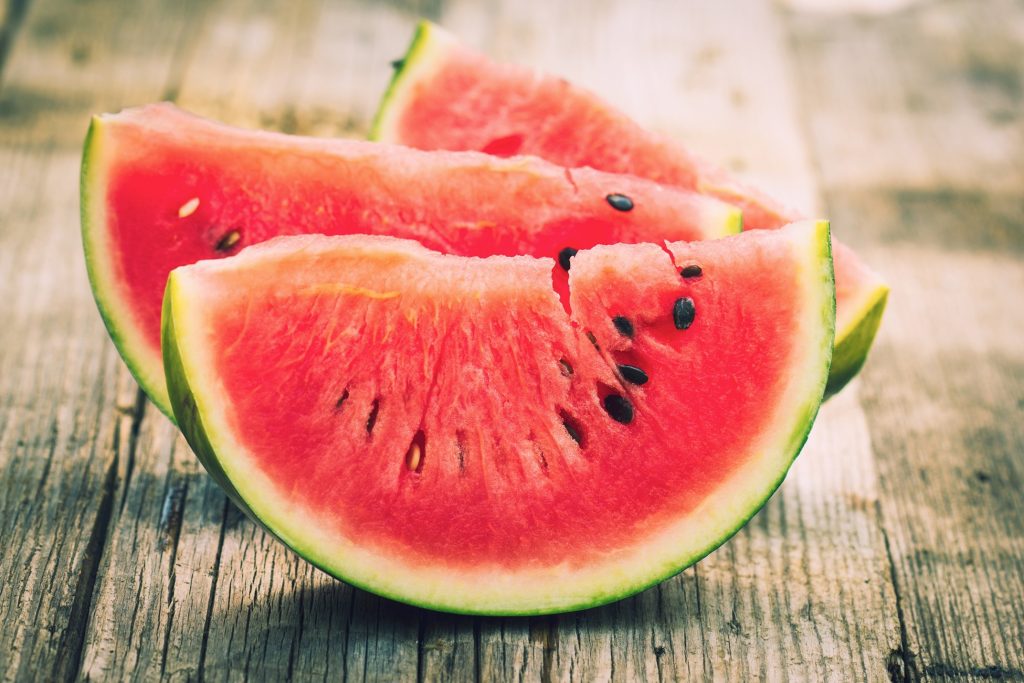Good news! People with diabetes can experience more joy and less depression by incorporating fruit into their diet. A study published in the British Journal of Nutrition found that swapping out cookies or chips for a few servings of fruit a day, boosted positive mental health.
How many times have you heard people or providers say they can’t eat fruit because it will wreak havoc on their diabetes? That statement is actually not accurate nor is it backed by science.
The truth is, people who consume a diet rich in fruits and vegetables, including fresh, canned, and frozen varieties, report a more positive psychological state. In addition, they are less likely to have symptoms of depression, stress, and anxiety compared to those who do not eat these nutrient-rich foods on a regular basis.

Why are fruits so good for our mental health?
Snacking on fruits throughout the day can promote the synthesis of serotonin, which improves moods. Plus, healthy gut bacteria thrive on the fiber and nutrients provided by these nutritional powerhouses. As a result, there is improved gut-brain communication and cognition and decreased inflammation.
Eat More Fruit and Fewer Snack Foods
These study results provide new insights into the associations between certain types of food and psychological health, and the mechanisms that may mediate the effect. This study identified that frequent fruit consumption has a direct positive relationship with mood. Whereas more frequent consumption of savory snacks, like packaged chips and other high-fat snack foods, was associated with increased symptoms of depression, stress, anxiety, and reduced psychological wellbeing.
People with diabetes are encouraged to celebrate fruit
Even though this study did not specifically evaluate people living with diabetes, they can still celebrate this news. Many people with diabetes think they have to avoid fruit since it contains sugar. However, by spreading their fruit consumption throughout the day, they can enjoy three servings a day, guilt-free. By watching portions, they can enjoy a rainbow of fruit knowing that they are boosting their mental health and well-being. In addition, we can encourage them to explore ways to include vegetables in their usual meals. These little changes can add up to big improvements in well-being and cognition.
For a quick list of fruit servings sizes in English and Spanish, you can download our Carbohydrate Cheat Sheets here, Carb Counting Quick Reference and Spanish Carb Counting Quick Reference.
Want to learn more about Diabetes Care? Join us for our
Virtual DiabetesEd Specialist Conference
30+ CEs
Airs October 12-14th, 2022
Join us LIVE for this Virtual Course and enjoy a sense of community!
Whether you are new to diabetes or a seasoned expert, you’ll benefit from this virtual conference with the latest research plus critical content that you can immediately apply to your clinical practice.
Download Course Flyer | Download Schedule
If you are seeking a state-of-the-art review of current diabetes care, this course is for you. Our team has been fine-tuning this course for over fifteen years, and we know what you need. This program can also be a great addition to your CDCES or BC-ADM exam study plan.
Team of expert faculty includes:
- Diana Isaacs, PharmD, BCPS, BC-ADM, BCACP, CDCES – Educator of the Year, 2020
- Coach Beverly Thomassian, RN, MPH, CDCES, BC-ADM
- Ashley LaBrier, MS, RD, CDCES, Diabetes Program Coordinator
Two Registration Options
Don’t worry if you can’t make it live. Your registration guarantees access to the recorded version in the Online University.
All hours earned count toward your CDCES Accreditation Information
Sign up for Diabetes Blog Bytes – we post one daily Blog Byte from Monday to Friday. And of course, Tuesday is our Question of the Week. It’s Informative and FREE! Sign up below!
The use of DES products does not guarantee the successful passage of the CDCES exam. CBDCE does not endorse any preparatory or review materials for the CDCES exam, except for those published by CBDCE.









